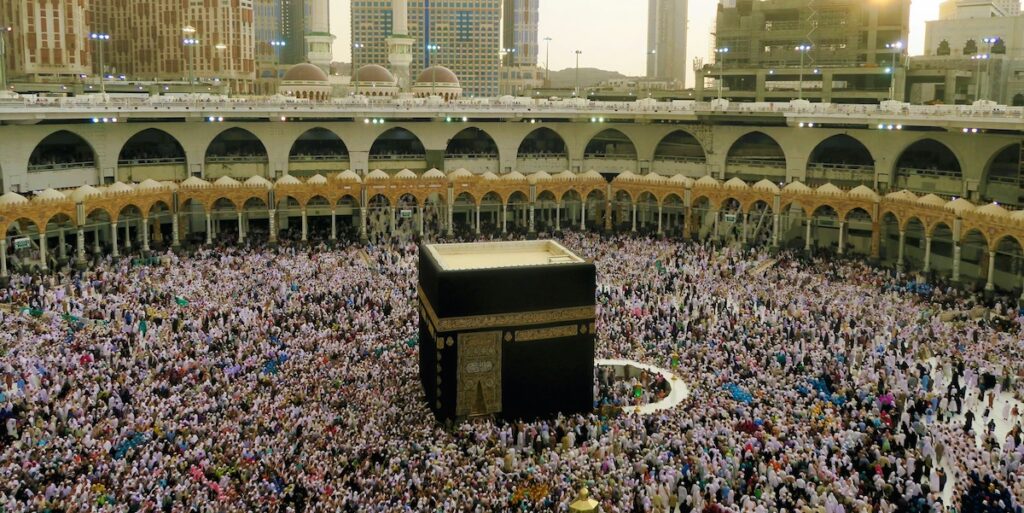The news during the last month has drowned us in a hopeless pool of negativity and violence. At every time, but especially with current events throughout the world, we must rise up against antisemitism and anti-Arab racism.
And while we rise up against those things, we need to understand the dangerous problem that violence creates.
Many politicians in the US and around the world tell us that the only way to defeat terrorism is to kill terrorists.
But what if they are wrong? After all, from nearly the beginning of human history, we have thought the way to deal with violence is with more violence. And looking at the human track record, violence hasn’t worked to solve violence.
Violence also doesn’t work to solve the violence of terrorism.
So how do we defeat terrorism?
Ami Ayalon is the former leader of the Shin Bet, Israel’s top Security Agency. Among other things, it’s purpose is to provide security for the state of Israel, expose terrorist organization, interrogate terrorist suspects, be responsible for intelligence and counter-terrorism procedures in the West Bank and the Gaza Strip.
Ayalon worked his way to the head of the Shin Bet through an impressive career in the Israeli Army. He was a member of the Shayetet 13, the equivalent to the Navy Seals in the US. He then commanded the Israeli Navy on his way to becoming the leader of Shin Bet. He received Israel’s highest military medal of honor, the Medal of Valor.
He was the warrior of warriors. But after spending much of his life killing his enemies, Ayalon made an important discovery that he documents in his book, Friendly Fire: How Israel Became It’s Own Worst Enemy and the Hope for Its Future.
Of course, Ayalon writes from his own specific context, but the book could easily have the more general title, Friendly Fire: How Humans Became Our Own Worst Enemy and the Hope for Our Future.
In the book, Ayalon explains how he thought the violence of counter-terrorism was the most productive way of creating peace, but over time he discovered that violence only made things worse.
Ayalon writes, “The more we employed our vast military superiority to pound the Palestinian population, the more Hamas grew in strength. It was a variation of the old dilemma of winning every battle and losing the war” (Kindle loc 311).
Over time, Ayalon discovered the truth that violence begets more violence. Israeli violence against Palestinians only strengthened Hamas. And Hamas violence against Israel only ensured more violence against the Palestinian people.
So, if violence doesn’t work, what is the alternative?
The alternative is fostering hope.
Ayalon writes that since violence doesn’t work, “Our most pressing security question was, therefore, no longer a military one. It was how best to foster hope among Palestinians. Our security was contingent upon millions of Palestinians, in their ramshackle cities and squalid camps, believing they could soon be free from our domination. Hope, Palestinian hope, was essential to Israel’s security” (Kindle loc 326).
Palestinians need real hope, not a false hope that will never be achieved. People without hope become desperate and they resort to desperate measures. Ayalon states that only when Palestinians have real hope “that the political process will lead to an end to the occupation and discrimination, and to the establishment of their own state alongside Israel” will there be the best chance for peace.
Like the prophets of the Bible, Ayalon is critical of himself and his nation. The prophets spoke truth to power, telling the leaders that violence and greed only make things worse. The alternative to violence is to meet the needs of the poor, widows, orphans, and immigrants in the land.
As a citizen of the US, Ayalon’s prophetic message is just as important for my country as it is for any other country. After all, the United States outspends the next eight countries combined in our military spending. This reliance on our military only ensures a future of more violence.
One of my favorite books on hope is titled Psychopolitics. It’s written by Jean-Michel Oughourlian, Professor of Clinical Psychopathology at the University of Paris. Oughourlian is a student of René Girard’s mimetic theory, which states that we imitate one another and we are supremely imitative in our violence. Violence begets violence until someone has the courage to stop the cycle and replace it with something else: Hope for a better life.
Instead of spending money on war, Oughourlian writes, “…terrorist violence, which is terrible vengeance, is soluble in a single substance: money. Instead of spending astronomical sums on arms, let us spend on roads, hospitals, schools, houses, businesses, to create jobs and so on. Instead of financing war, let us purchase peace” (23).
Some may call Alayon, Oughoulian, and Girard naive. I understand that impulse. But it’s also important to recognize the pattern of human history – our violence against our enemies and their violence against us will likely create another generation of mutual enemies.
Our only hope to defeat this cycle is to replace it with a cycle of hope for a better life. It’s that hope that we must begin to foster in ourselves and in others. Otherwise, we need to recognize the dire apocalyptic warning that we will doom ourselves to the destruction of our own making.
But I can’t end on such a gloomy note. I’m inherently optimistic. If you are like me, you don’t feel like you have much power to foster peace in the world. But you do.
Violence is imitative, but so is love. So is courage. So is forgiveness. So is nonviolent direct action. So is working for the common good. We must work for these things in our personal lives, and encourage our politicians to do the same. It is our only hope.




